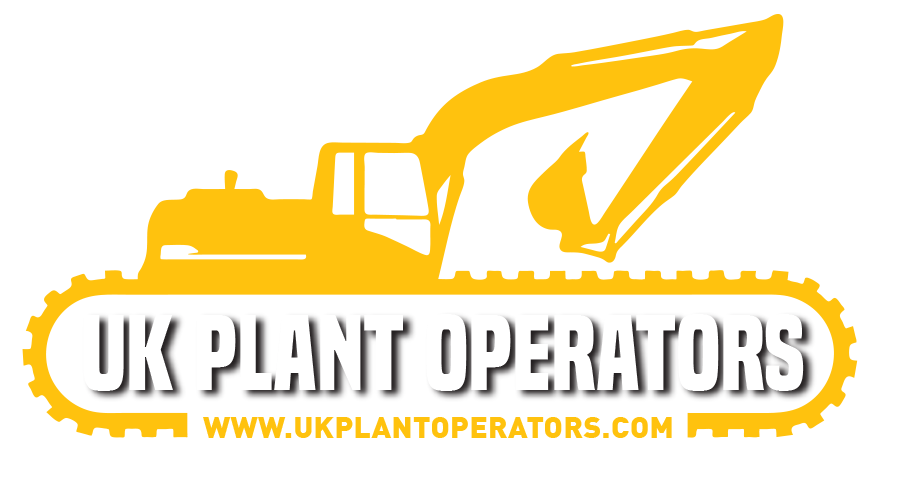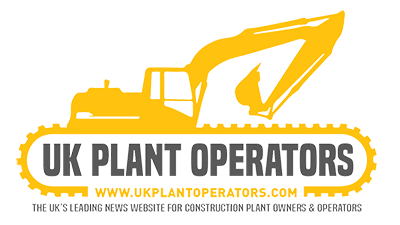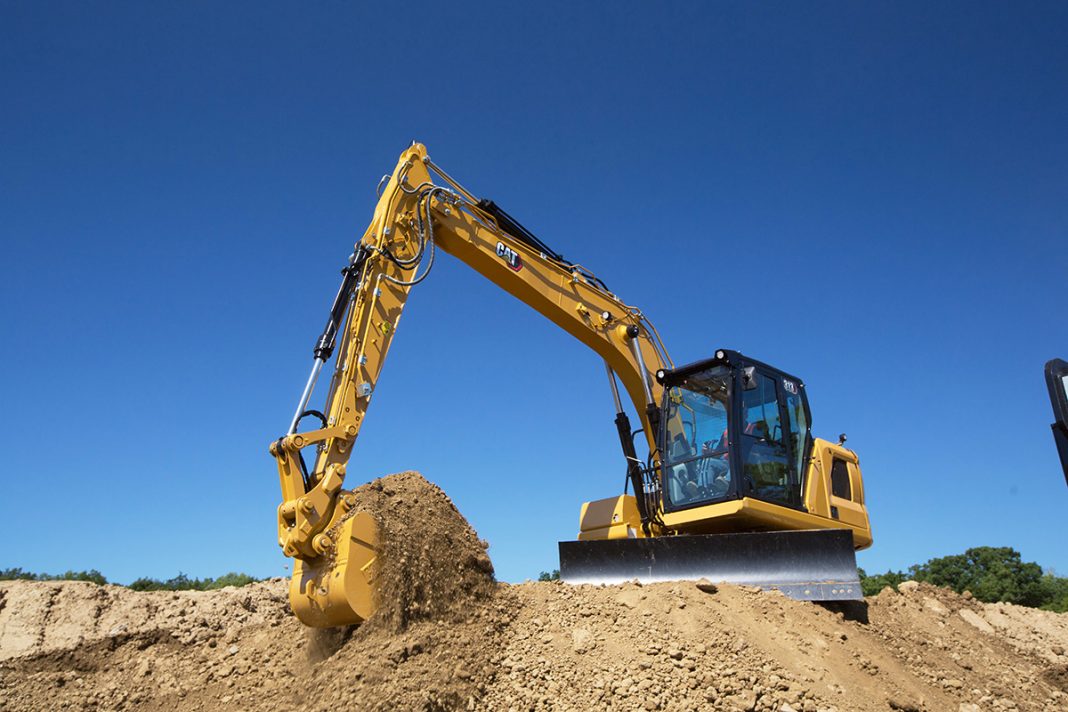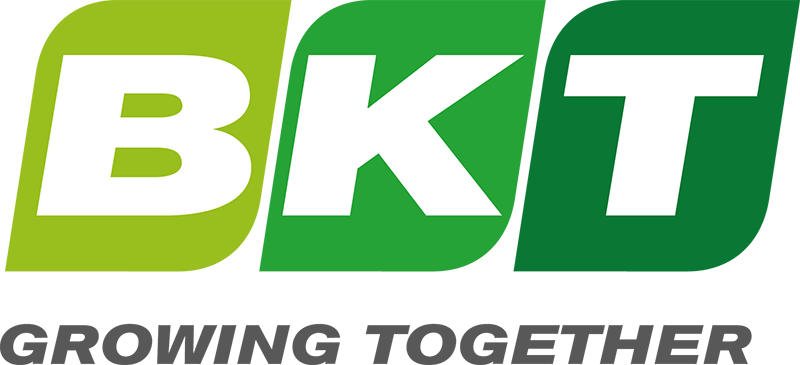![]()
UK Plant Operator talks to Steve Breen, General Manager (GM) at Finning UK and Ireland, about the state of the construction sector, the impact of Covid-19 and the dealer’s plans to rejuvenate the used equipment market.
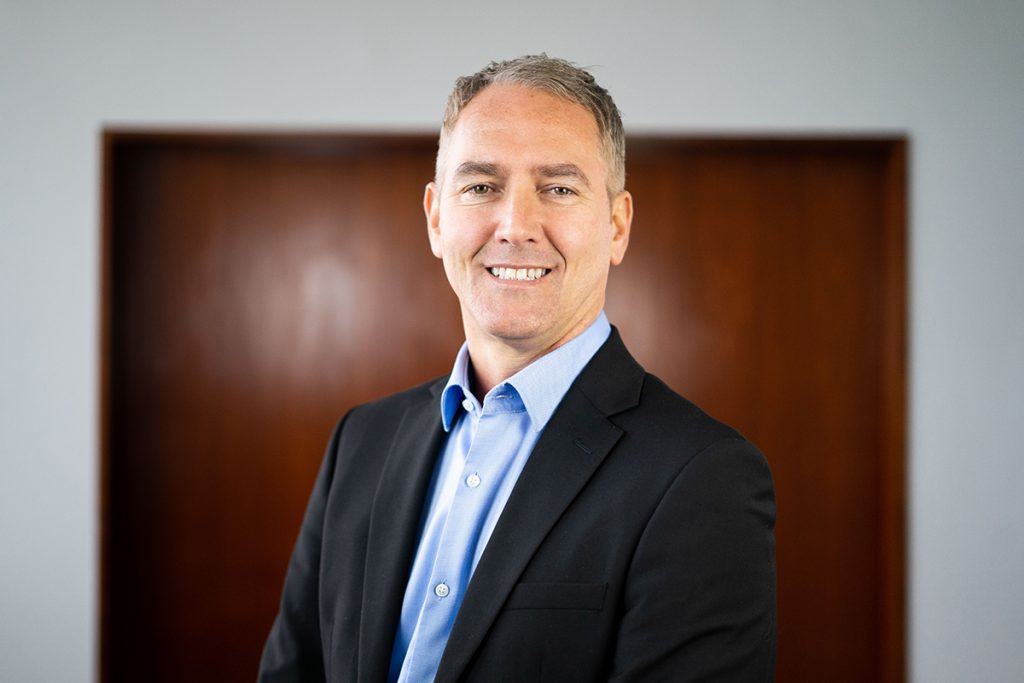
Q: You’re a relative newcomer to Finning UK & Ireland, having joined the business in January of last year. Can you tell us a little about your previous experience?
While I have a lot of recent construction sector experience, my career has also included significant periods with brands such as Electrolux and global coatings company AkzoNobel. I think it’s this breadth of experience that will really energise my role as General Manager of the construction team at Finning.
It was the sheer diversity of customer base and great reputation of the Finning name that attracted me to the company. Whether you’re a landscape gardener, a sub-contractor on HS2, a global cement manufacturer or waste business – you could be using one of the machines from the Caterpillar® range. It’s definitely that breadth of customer that excites me. Looking ahead, I really want to open up the Caterpillar brand to smaller, dynamic customers who may not have considered us as a business partner before.
Q: What are the plans for the future at Finning?
While Covid-19 is having a continued impact on the construction sector, we’re still committed to our global strategic objective of doubling our share of the aftermarket by 2026. How will we do this? It’s all about understanding our customers within specific niches such as construction, waste and wider industry. We’re also putting a lot of focus on helping smaller businesses through the next year. 20 per cent of SMEs work in the construction industry so we’re changing the way we operate to make purchasing equipment much more affordable and accessible. We’re also continuing to invest in improving our high service levels via our dealership network.
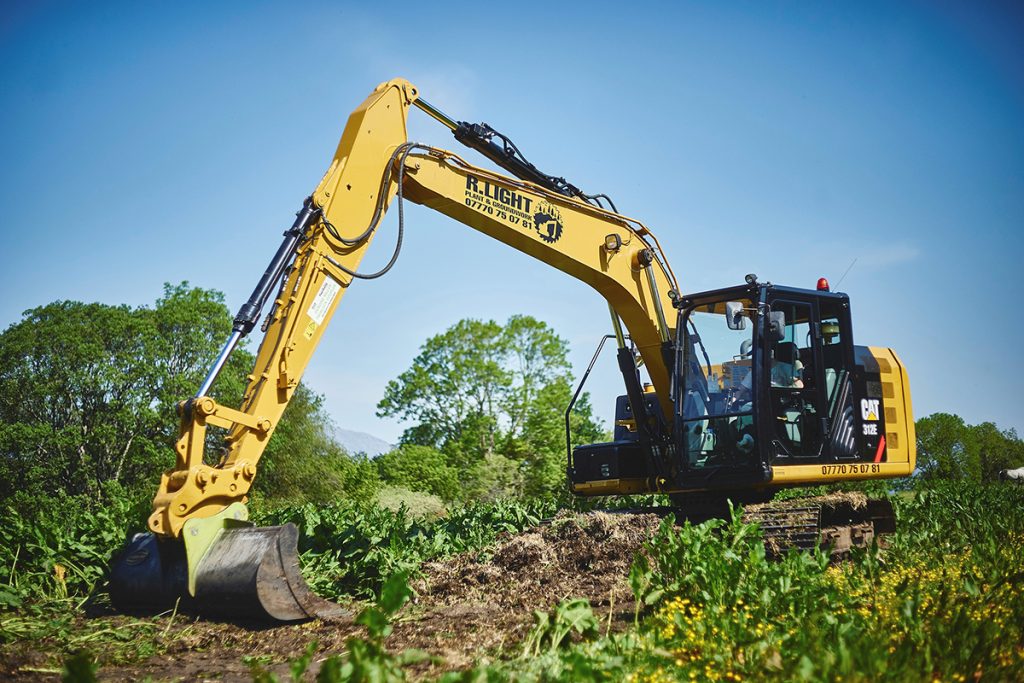
Q: You were in a new role for just over a year when the Coronavirus struck. How did you cope?
The biggest adjustment for me personally, was adapting to working from home and looking after three kids and a dog whilst working; my wife works for the NHS as a Macmillan nurse and has been on the frontline since the start of the pandemic.
In terms of Finning, like the rest of the plant market, we saw a significant decrease in activity at the end of March, which lasted through to April and May. During this time, our attention turned to supporting our customers involved in essential services – such as those in the waste collection and recycling sectors. This was a huge learning curve for us which taught us how to adapt to a dynamic, changing market. Instead of sales, our team switched to a much more supportive, ‘soft-touch’ approach to customers.
I can’t deny that dealing with the ‘double whammy’ of jitters caused by Brexit and then Covid-19 has been a once in a lifetime experience. The plant market in general contracted by 19% by the end of 2019 and we were no exception. Within months, the true extent of the Coronavirus became apparent, which effectively closed us down for several months.
Latest industry figures estimate that the UK and Ireland markets will be down by approximately 35% in 2020. While the governments have been supportive and encouraged sites to get back up and running, we all need to maintain a positive approach and change our businesses to adapt to the new market conditions.
Q: Can you tell us how Finning has been supporting businesses in the UK and Ireland?
Obviously, on-site safety became a major focus for us once lockdown was lifted. So, we moved quickly to make pressurised cabs available, which was especially welcomed by the waste sector. Suddenly key worker protection was vital, and it was rewarding to be able to help clients to fulfil this important aspect of the operations.
Equally, customers still wanted a full handover once they’d bought a new piece of equipment, so we had to provide the same high level of customer service while adhering to health and safety standards.
While we adapted to use tools such as WhatsApp and Teams to keep in touch with customers, we also had great support from the Cat university, who enabled customers to access comprehensive technical guidance on their machines at the point of handover.
Q: Finning is well known as an innovator. Can you tell us how this has materialised in the area of product development and health & safety?
Despite the headwinds caused by Covid-19, Caterpillar has continued to invest heavily in its new product innovation (NPI) programme. Our next generation of machines are already demonstrating class-leading levels of comfort, efficiency, and safety. Launched at last year’s Plantworx exhibition, our new 13-ton class Next Generation excavator models – the Cat 313 and 313 GC – are set to make quite an impact.
These new machines are all about improving performance, increasing efficiencies, and lowering ownership and operating costs. The new Cat 313 excavator boasts increased power and a range of standard Cat technologies designed to boost operator efficiencies by up to 45 percent. The new Cat 313 GC model lowers maintenance costs by up to 25 percent, making it the right fit for rental, municipal, and general all-around excavating applications requiring dependable performance and low operating costs.
These are our most efficient machines ever, which also showcase the latest technology to reduce overfill and undercut. They also boast slew restriction systems which helps to avoid oncoming traffic collisions. Our 360-degree cameras systems also establish a virtual boundary for machines – again reducing accidents.
Q: How is Finning helping its customers get through the Covid-19 challenges?
We’ve spent a lot of time talking to our customers throughout this period to get a sense of what they’re facing in terms of limited cash flow, project uncertainty and staff health and wellbeing.
I see our role as understanding the issues each customer is facing and helping them to overcome those challenges. While ‘being there’ and actively supporting customers has been massive for us, so has continuing to innovate.
Finning has invested significantly in the last few years to enable the acquisition and analysis of data from machines. While this might seem like just a desk exercise, our ability to assess that data is helping Cat equipment users to increase productivity and usage. And at a time when efficiency is vital, this is a huge benefit.
We can scale this consultancy-style service to suit each customer’s needs. Whilst a landscaper might be only interested in an analysis of machine usage on a weekly basis, a major contractor might like to take a wider view of plant efficiencies and running costs across the fleet.
We’re certainly seeing more interest in this consultative approach to plant management as margins are cut during the ongoing Covid-19 outbreak. As well as product innovation, this is one area where we can add really value.
Q: How has the used market been over the last few months?
The used market has responded to the global pandemic in many of the same ways as the new machine market. We’ve seen an overall drop in sales from March through to May and a focus on cost reduction and efficiency improvements. However, we predict that used machines sales will increase over the next twelve months as customers look to trade in older machines and want a replacement that, although isn’t brand new, offers a bona-fide, commercial alternative.
We are already seeing our ‘used and approved’ machines getting a lot of attention in the market. All our used machines come with a three-year warranty and service package that gives the owner/operator peace of mind. When they do want to upgrade to another model, they can sell this on as a certified unit, which retains a lot of its value.
Q: Can you tell us more about your recently launched Forever Young campaign?
This year, we’ve also extended our warranty scheme for both new and used machines under the ‘Forever Young’ brand. This is a service aimed at plant operators who want to expand their fleet but can’t afford it right now, often due to cashflow constraints. This is a chronic issue in the construction sector and one that we’ve been working on for some time. Forever Young is powered by the company’s ability to rebuild and rejuvenate used machines so that they can fulfil the medium-term needs of the business. Let’s say a contractor has three excavators that need more power for a major upcoming contract but can’t raise the funds to buy new kit. We can put the current plant through the Forever Young system to bring them up to speed. Even better, for those customers that choose a Cat certified rebuild then we’re able to offer an extended warranty of five years.
We’re seeing this approach as another significant alternative to buying new – with some customers acquiring plant using a mix of new and ‘Forever Young’ models. It’s this kind of thinking that will help plant operators get through the next couple of years.
Q: Are you helping with plant finance?
We understand that 2020 and 2021 will be the toughest trading periods we’ve ever seen. Hence, there’s a lot of interest in our ‘buy now, pay later’ and zero per cent finance offers. I should also add that the zero per cent offer extends to parts and service and we plan to offer these rates to small customers as well as the larger ones for the foreseeable future.
Q: Finally, do you have any predictions for the next three years?
Given the fact that we’re in the midst of a second wave of Coronavirus, I think the industry is having to learn to live with Covid-19. From a health & safety and operational perspective, this will mean a lot more remote working, the use of technology to communicate and more innovation to meet customers’ needs.
Considering the added cost of Covid, I think ownership models will change to three to five-year cycles. Customers will be much more interested in longer ownership periods, with a greater emphasis on service and maintenance.
Technology will continue to impact the way we work. Smarter use of the data we can pull from machines will become a lot more common on sites. Also, I think we will see a far more sophisticated use of remote services and remote vehicles, which we can already see being used on demolition sites.
No-one is saying the next few years will be easy. But having the right partners to support your business is going to be key. I’d like to think that we will be there for our customers – both large and small – to help them navigate through this.
